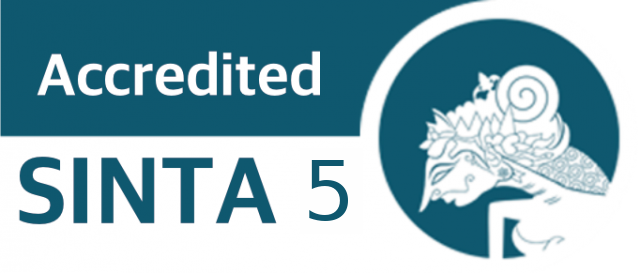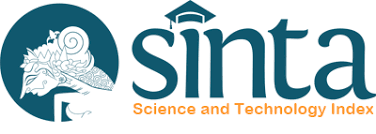Assistance in Writing Scientific Articles for Students Through a Workshop-Mentoring-Peer Review Model
Abstract
This scientific article writing assistance program aims to improve academic literacy and foster scientific writing skills among KMI Assalam students. The implementation method consists of three stages: preparation, implementation, and evaluation. In the initial stage, needs analysis and personal learning plan design are carried out. The implementation phase includes training in research methodology, academic writing techniques, and individual feedback sessions and peer review. Evaluation was carried out by assessing the student's final manuscript, reflective journals, satisfaction surveys, and focus group discussions. The results of the program showed a significant increase in students' ability to write scientific articles, both in terms of writing structure, the use of academic references, and confidence in conveying ideas scientifically. This activity also forms a collaborative and reflective scientific culture in the school environment. This program makes a positive contribution to strengthening students' academic capacity and becomes an effective model in building a sustainable scientific literacy ecosystem at the senior high school.
Downloads
References
Acesta, A., Setiawati, I., Triariani, M., Julianah, & Ridwan, F. (2024). Pelatihan Penulisan Karya Ilmiah bagi Guru SD: Meningkatkan Kompetensi Menulis untuk Peningkatan Kualitas Pendidikan. Journal of Innovation and Sustainable Empowerment. 3(2), 126-133. https://doi.org/10.25134/jise.v3i2.111
Arono, A., Diani, I., Yunita, W., Aulia, R., & Syahriman, S. (2022). Pengabdian Masyarakat Melalui Taman Bacaan Model Kampung Literasi Di Desa Rindu Hati, Bengkulu Tengah. Empowerment, 5(02), 144-161. https://doi.org/10.25134/empowerment.v5i02.4964
Bitchener, J., & Ferris, D. R. (2012). Written Corrective Feedback in Second Language Acquisition and Writing. Routledge.
Busby, D., & Malone, C. (2023). Writing Circles: developing learner self-efficacy and agency through peer review activities. Journal of Learning Development in Higher Education. 27(2), https://doi.org/10.47408/jldhe.vi27.872
Boud, D., Cohen, R., & Sampson, J. (2001). Peer Learning in Higher Education: Learning From and With Each Other. Kogan Page.
Braun, V., & Clarke, V. (2006). Using Thematic Analysis in Psychology. Qualitative Research in Psychology, 3(2), 77-101. https://doi.org/10.1191/1478088706qp063oa
Cindy, E. Hmelo-Silver. (2013). The International Handbook of Collaborative Learning. Routledge
Chao, C., Abdul, N.A., Soon, G.Y. (2025). A Review on Project Based Learning in Enhancing English Writing Skills. Forum for Linguistic Studies, 7 (1), 913 – 926. https://doi.org/10.30564/fls.v7i1.8106
Dana, R. Ferris & Hedgcock, John. (2014). Teaching L2 Composition: Purpose, Process, and Practice. Routledge
Davidson, M.J. (2021). Towards an Understanding of Program Writing as a Cognitive Process: Analysis of Keystroke Logs. Proceedings of the 17th ACM Conference on International Computing Education Research. 407 - 408 https://doi.org/10.1145/3446871.3469774
Dewra, D.S. (2025). Innovative Approaches in Modern Education: Bridging Theory and Practice. International Journal of Scientific Research in Engineering and Management. https://doi.org/10.55041/ijsrem46731
Ertmer, P.A. et al. (2013). Behaviorism, cognitivism, constructivism: Comparing critical features from an instructional design perspective. Performance Improvement Quarterly, 26 (2), 43 - 71, https://doi.org/10.1002/piq.21143
Ferianti, F.W., Saputri, L.D., & Tirsa, A. (2024). Pelatihan Penulisan Karya Ilmiah bagi Siswa SMA Negeri I Pinoh Utara. Dedikasi: Jurnal Pengabdian Kepada Masyarakat. 5(1), https://doi.org/10.46368/dpkm.v5i1.3505
Graham, Steve. (2019). Changing How Writing Is Taught. Review of Research in Education, 43 (1), 277 – 303. https://doi.org/10.3102/0091732X18821125
Hyland, K. (2015). Academic Publishing: Issues and Challenges in the Construction of Knowledge. Oxford University Press.
Kirkpatrick, J.D. & Kirkpatrick, Wendy Kayser. (2016). Kirkpatrick's Four Levels of Training Evaluation. Association for Talent Development.
Kolb, David A. (2014). Experiential Learning: Experience as the Source of Learning and Development. FT Press
K. (2024). Fostering scholarly writing development using a scaffolding approach. Journal of professional nursing : official journal of the American Association of Colleges of Nursing, 55, 70-72. https://doi.org/10.1016/j.profnurs.2024.09.004
Murphy, Megan. (2021). Effective Scientific Writing. United States: Elsevier
Nelson, Connor et al. (2025). SENSAI: Large Language Models as Applied Cybersecurity Tutors. SIGCSE TS 2025 - Proceedings of the 56th ACM Technical Symposium on Computer Science Education, 1, 833 - 839, https://doi.org/10.1145/3641554.3701801
Nisa’, R. (2022). Pelatihan Membuat Sitasi Karya Ilmiah Mahasiswa Menggunakan Aplikasi Mendeley. TAAWUN, 2(02), 170-179. https://doi.org/10.37850/taawun.v2i02.324
Oktavia, Y., et al. (2025). The Role of Blended Learning and Creative Problem-Solving in Scientific Article Writing: A Case Study in Higher Education. TEM Journal, 14 (2), pp. 1445 - 1457, https://doi.org/10.18421/TEM142-45
Patak, A. A., Jefri, R., Noni, N., Hidayahni Amin, F., & Khaer Hanafie, N. (2024). Pelatihan Penulisan Karya Ilmiah Bebas dari Plagiat dengan Bantuan Media Google Scholar, Mendeley Desktop, dan Turnitin. Panrannuangku Jurnal Pengabdian Masyarakat, 4(4), 202-207. https://doi.org/10.35877/panrannuangku3409
Richards, J. C., & Schmidt, R. (2013). Longman Dictionary of Language Teaching and Applied Linguistics. Routledge.
Rifky, S., Putra, J. M., Ahmad, A. T., Widayanthi, D. G. C., Abdullah, G., Sunardi, S., & Syathroh, I. L. (2024). Pendidikan Yang Menginspirasi: Mengasah Potensi Individu. Yayasan Literasi Sains Indonesia
Rizqa, M. ., Noviarni, N., Suhandri, S., Juniardi, M. A. ., & Risnawati, R. (2024). Pendampingan Penulisan Artikel Ilmiah Dan Penggunaan Mendeley Desktop Sebagai Referensi Bagi Mahasiswa Pascasarjana UIN Suska Riau. Community Development Journal : Jurnal Pengabdian Masyarakat, 5(5), 9696–9701. https://doi.org/10.31004/cdj.v5i5.35801
Shadiqi, M. A. (2019). Memahami dan Mencegah Perilaku Plagiarisme dalam Menulis Karya Ilmiah. Buletin Psikologi, 27 (1). 30 – 42.
Schön, D. A. (2017). The Reflective Practitioner: How Professionals Think in Action. London: Routledge
Swales, J. M., & Feak, C. B. (2012). Academic Writing for Graduate Students: Essential Tasks and Skills. University of Michigan Press.
Tanjung, R., & Arifudin, O. (2023). Pendampingan Meningkatkan Kemampuan Mahasiswa dalam Menulis Jurnal Ilmiah . Jurnal Karya Inovasi Pengabdian Masyarakat (JKIPM), 1(1), 42–52. Retrieved from https://ojs-steialamar.org/index.php/JKIPM/article/view/61
Topping, K. J. (2009). Peer Assessment. Theory Into Practice, 48(1), 20–27. https://doi.org/10.1080/00405840802577569
Trilling, B., & Fadel, C. (2009). 21st Century Skills: Learning for Life in Our Times. Jossey-Bass.
Vygotsky, L. S. (2012). Mind in Society: The Development of Higher Psychological Processes. Harvard University Press.
Zhao, CM., Kuh, G.D. (2004). Adding Value: Learning Communities and Student Engagement. Research in Higher Education. 45, 115–138 https://doi.org/10.1023/B:RIHE.0000015692.88534.


.png)

.png)




.png)
.png)


